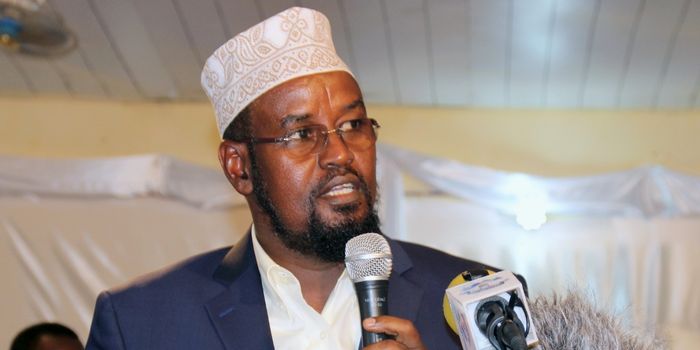Jubaland Parliament allows President Ahmed Madobe to seek third term

Legislators decided to eliminate Article 70, which restricted leaders to two terms, and modified Article 65 to extend the presidential term from four to five years.
The Jubaland Regional State parliament in Somalia has approved changes to its constitution, allowing the current leader, Ahmed Madobe, to seek a third term in office.
The decision was made during the fifth session of parliament in Kismayo on Tuesday at which legislators decided to eliminate Article 70, which restricted leaders to two terms, according to local media.
More To Read
- Two Somali soldiers killed as national army repels militia attack in Gedo region
- Jubaland and Puntland leaders to meet in Nairobi for talks on alliance against Somali President Hassan
- Why Jubaland President visited Nairobi amid tension with Somalia federal government
- Garissa communities call for urgent intervention over growing tensions in Raaskambooni
Shukri Wayrax Kaariye, chairman of the parliamentary procedural committee overseeing the constitutional change, confirmed the changes, noting that stakeholders, including civil society groups, were consulted.
"Today, the Jubaland parliament gathered. Sixty-eight MPs were in attendance, and they have unanimously voted for the change of six articles that would affect education, health, the system of government, the parliament, and the regional elections," said Shukri.
He explained that the new governance model is hybrid, and gives the president absolute power to appoint cabinet members, governors, and district administrators, and fill key security positions.
Additionally, parliament modified Article 65 to extend the presidential term from four to five years.
These amendments were enacted despite an earlier accord between the federal government and regional leaders to hold direct regional leadership elections by November 30, 2024.
Somalia President Hassan Sheikh Mohamud agreed with the regional presidents in May this year to hold a one-person, one-vote electoral system by the end of November.
With elections in Jubaland slated for August, both the federal government and opposition groups are paying close attention to the process and its transparency and fairness.
Immediately after being allowed to run for a third term, Ahmed praised the Jubaland parliament, terming it the most resilient in Somalia, and suggested that the national one should emulate it.
"If the federal parliament operated the way Jubaland's does, it would overcome most of the obstacles facing the country," he told Jubaland TV.
Ahmed has been president since 2013 when Jubaland State was established. He was reelected in August 2019, securing 56 out of the 75 votes cast by the members of parliament in Kismayo.
The opposition then accused him of being undemocratic during his previous term, and critics accused the electoral commission of skewing the results in his favour.
Top Stories Today













































